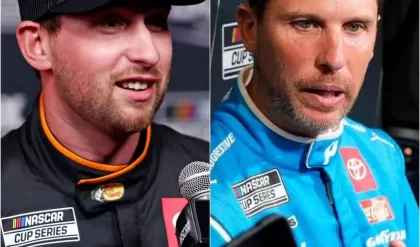Novak Djokovic has voiced concerns over the handling of Jannik Sinner’s recent doping case, emphasizing the need for more transparent and consistent protocols from the International Tennis Integrity Agency (ITIA). Djokovic’s remarks come in response to the ITIA’s decision not to ban Sinner despite the world No. 1 testing positive for anabolic steroids on two separate occasions.

The controversy began when Sinner’s positive tests in March were linked to a banned substance allegedly introduced into his system through a massage performed by his physiotherapist. Although the ITIA cleared Sinner to compete a week before the US Open, Djokovic has criticized the lack of uniformity in anti-doping enforcement.

Djokovic expressed frustration with the current system, pointing out that the ruling on Sinner has sparked doubts about the fairness of anti-doping regulations. “We see a lack of standardized and clear protocols,” Djokovic told the Associated Press, as reported by ESPN. “I can understand the sentiments of a lot of players that are questioning whether they are treated the same.”

The ITIA’s decision has been met with mixed reactions from the tennis community. Critics argue that the ruling could undermine the credibility of the sport’s anti-doping efforts, particularly in light of Sinner’s prominent status as the world’s top-ranked player.

In a statement posted on Instagram, Sinner expressed his commitment to complying with anti-doping regulations. “I will now put this challenging and deeply unfortunate period behind me,” Sinner wrote. “I will continue to do everything I can to ensure I continue to comply with the ITIA’s anti-doping programme and I have a team around me that are meticulous in their own compliance.”
The decision has prompted significant discussion among players and observers. Denis Shapovalov, a fellow competitor, took to social media to voice his concerns. “Can’t imagine what every other player that got banned for contaminated substances is feeling right now,” Shapovalov tweeted. “Different rules for different players.”
The debate surrounding Sinner’s case is expected to intensify, especially if he performs well at the US Open. The case has already become a talking point, with many questioning whether the ruling might be influenced by Sinner’s top ranking.
The tennis world will be closely watching how Sinner’s case unfolds and whether it will impact the broader discourse on anti-doping practices. Djokovic’s call for clearer protocols reflects a growing demand for consistency in how doping violations are addressed, which is crucial for maintaining the integrity of the sport.
As the US Open progresses, the situation surrounding Sinner’s eligibility and the transparency of anti-doping regulations will remain a focal point. The outcome of the tournament could further influence the conversation about fairness and consistency in tennis.
For now, Djokovic’s remarks highlight a critical issue within the sport’s governance, underscoring the need for an equitable and transparent approach to anti-doping enforcement.





